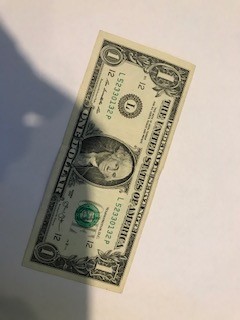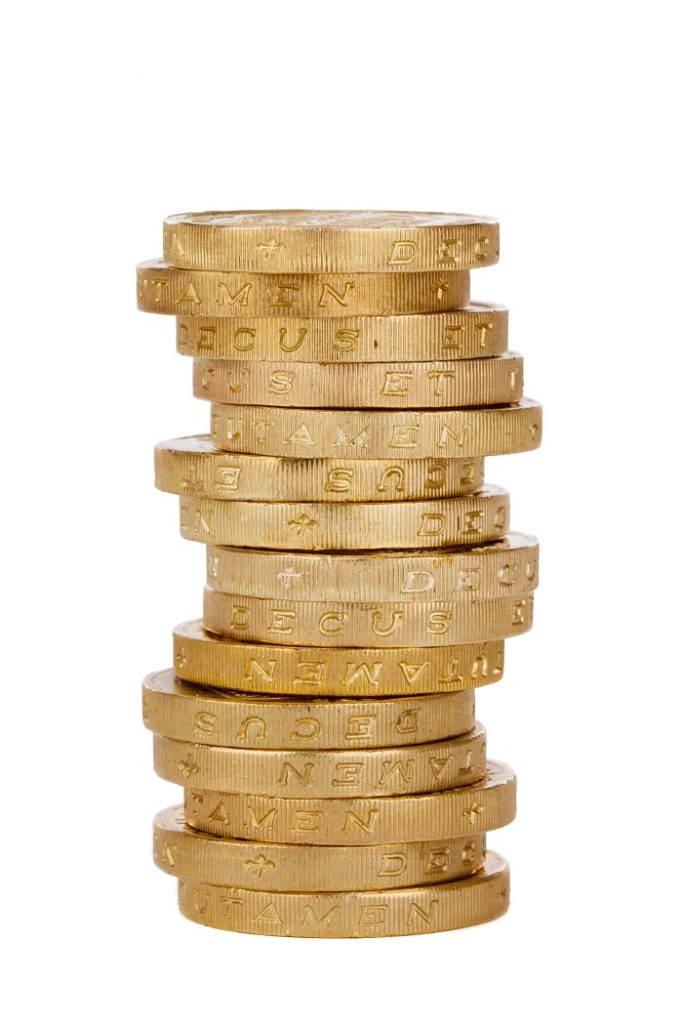
The Dollar is the World’s Reserve Currency
There’s a conspiracy that the United States is manipulating the price of gold. They say that it’s in the interest of the U.S. to keep the price of gold down so that the dollar actually seems stronger than it is.
This is especially important they say because since the dollar became the World’s Reserve Currency in the 1940’s. Especially they say that after World War II when the United States help win the war against Germany and Japan.
Ever since then the dollar it seems has been the world’s reserve currency. They say that originally the value of the dollar was tied to gold.
The Gold Standard

And that in 1971 President Nixon took the U.S. off of the Gold Standard when he closed the gold window. What was the case before that was that the dollar was tied to gold and holders of the dollar could go to a bank and turn in their dollars and receive gold.
The conspiracy believers say that what was happening was that countries that had accumulated large sums of dollars through trade, wanted to trade them in for gold.
And they say that this was draining all of the gold that was in Fort- Knox Kansas. And since the dollar was tied to gold they could do that.
So it became necessary to decouple the dollar from gold. And they say that’s the reason that the U.S. will always manipulate the price of gold downward.
Is Gold Competition for the Dollar
The Sponsors of this conspiracy say that it is possible because gold competes with the dollar for being a viable type of money. Especially since it has all of the qualities that make up good money.
Currency on the other hand does not have all of the qualities of good money.
This is an interesting conspiracy because as we know gold and silver as well have been considered to be money for thousands of years.
And only in recent times and the advent of currencies has paper money been able to make inroads as money. They say that today people have been fooled by currency which is deceitful impostor.
Don’t know what you think but seems that this conspiracy may have some merit.
Here is the full text of Senator in Congress minus the silver product totals, Interesting speech on what money should be’
IN THE
HOUSE OF REPRESENTATIVES,
FRIDAY, AUGUST 25,1S93.
WJLSmiSTG-TOK;
1893.
SPEECH
OF
HON. JAMES D. R I C H A R D S O N .
The House having tinder consideration the bill (H. R. 1) to repeal a part ot
an act, approved July 14,1890, entitled “An act directing the purchase of silver
bullion and the issue of Treasury notes thereon, and for other purposes”—
Mr. RICHARDSON of Tennessee said:
Mr. S P E A K E R : During the Fifty-second Congress, on the 23d
of March, 1892, a bill was pending in this House for the free coinage of silver and for the issue of coin notes, and for other purposes. While that bill was pending I took occasion to submit
some remarks to the House upon it. I stated that I thought it
was the plain duty of Congress to provide for the coinage of both
metals unless it could be shown that of one of the metals there
was a sufficient quantity which could be coined into money to
to meet the demands of our trade and commerce. I also quoted
from the Constitution of the United States the provision that
Congress shall have power 4 ‘to coin money, regulate the value
thereof, and of foreign coin.” I also quoted the provision, * No
State shall coin money,” and the provision, ” No State shall make
anything but gold or silver a legal tender in payment of debts.”
I insisted then, Mr. Speaker, that if both metals, gold and silver, could be coined, there would not be enough coin in the
United States to meet the just and legitimate demands of * trade
and commerce. ^ I have seen nothing since that time to lead me
to change the views which I then entertained and expressed. I
stated then that if silver was admitted to free coinage in this
country and to its rights before the law and under the Constitution, I believed it would go to a parity with the other metal..
In the beginning of my remarks to-day I wish to say that I
still entertain those views, and I shall vote for the free coinage
of silver at the ratio of 16 to 1, that failing for 17 to 1, then 18 to
1, then 19 to 1, and 20 to 1; and I shall vote in favor of the BlandAllison bill, and against the unconditional repeal of the Sherman law. [Applause.]
I shall not vote for any ratio higher than 16 to 1, the present
ratio, however, without some feeling of reluctance. I say this
because the ratio of 16 to 1 puts more silver into the standard
silver dollar of the United States than any government puts into
any silver coin in the world. I fear if the United States should
establish a ratio greater than 16 to 1 at an early day in the future all the silver of the United States would go abroad. It could
not be kept here. Foreign governments, then opening their mints
to the free coinage of silver, would have all our silver flowing to
£2034
them. No nation, so far as I know, ever adopted a much larger
ratio than 16 to 1. To change the ratio would mean the recoinag& of all our gold coins, or of all our silver coins, and during the
process of taking up the old coins and getting the new ones into
circulation great confusion and trouble would ensue.
I do not believe there is necessity for a change of the ratio,
for if we are to have bimetallism—the use of both metals—we can
as easily have it at 16 to 1 as at any other ratio. The ratio between the two metals in the days of Washington was about 15 to
1. At a later period, June 29,1834, it was fixed at about 16 to 1,
and thus, in my opinion, it should remain. I can not believe I
am mistaken, that with free coinage we can absorb the annual
supply of silver, and maintain the parity of the metals at 16 to 1
with as much certainty as at a new ratio.
I will only vote for a new and increased ratio now that we
may show a spirit of compromise and fairness to our friends,
members of the same party to which I belong, who honestly
lavor silver as money, yet who insist there is too much difference between the present standard silver and the gold dollar.
The present disparity in value between the two metals, it is
conceded, is great, but I contend that this great disparity is
largely if not altogether the result of legislation hostile to silver. I shall insert here an extract from the speech made by
me in the House on March 23, 1892, and which I now ask the
Clerk to read.
The Clerk read as follows:
From time immemorial, perhaps from the beginning of civilization, these
two precious metals have been recognized as money, and have been made
the media of commercial exchange. Gold and silver were the money of our
colonies before the States were formed. The framers of our Constitution
made our monetary system bimetallic when they made recognition of the
two metals in the provisions which I have quoted. I think it can be safely
assumed upon these premises that as representatives of the people in Congress our duty is a plain one—that is, to establish the ratio of value for the
coinage of the two metals, and then to provide for their free coinage. Such,
I assert, was the policy of Congress from the beginning of our Government
under the Constitution, at least from 1792 down to 1873.
During all these years from 1792 to 1873 both of these metals were free coined.
In the latter year, 1873, without any public demand for a change our system
was radically altered, and one of the metals demonetized. This was done
without discussion and without any public demand therefor. It was done
secretly and stealthily. It was done without the knowledge of the members
of Congress who themselves did it. If this radical change in our monetary
system had been made with understanding on the part of the legislators who
did it, and in answer to some popular demand therefor, it might with reason
be contended that there was wisdom in the new policy.
But it is a violent assumption to claim that for nearly a hundred years we
had been pursuing the right policy, and that all at once, without discussion
of the question and without the intention of the Congress which did it, the
new policy was discovered by accident and put into operation. The ratio of
value of gold and silver in this country as fixed by Congress was 16 to 1; that
is to say, gold was sixteen times as valuable as silver. In other words 1
ounce of gold was declared to be equal in value to 16 ounces of silver. At the
ratio of value I have mentioned, these metals circulated in our country side
by side with but little appreciable difference in value until 1873.
In 1873, when the crime was committed of the demonetization of silver,
for it was a crime, it is a fact that this met& exceeded in value the other
metal by about 3 per cent, It is believed now, by the advocates of bimetallism, that if silver is restored to its full constitutional rights, that is, to have
its legal-tender power restored, and to be admitted to the mints for free coinage, that it will speedily appreciate in value until it will be equal to gold.
It will not be controverted that when silver was stricken down in 1873 thaft
about one-half of the money of our country was destroyed, leaving as money
but the one metal, gold. The inevitable result was to immediately enhance
or increase the value of gold. What followed?
5205
We have but to look back to the intervening years since 1873 to find the
answer. The effect was seen in the depression in business, the stopping of
industrial enterprises, the falling off in the demand for labor, and sfo universal decline in prices. Especially has this been true in all the agricultural
districts in our land. The burden of the debtor class was doubled, and
thousands and tens of thousands of those who had known prosperity and
happiness-were brought to distress. Those who had gold or fixed incomes
were made richer while all the producing classes were made poorer. The
effect was to place gold at a premium of from 40 to 50 per cent., and at the
same time to make it the measure or standard of value of all other property
at its increased value. It may be that silver declined in value, and it did,
compared alone with gold. It was inevitable that such decline would follow.
As to every other commodity on earth I do not believe it can be said that
silver has declined. As compared with land, horses, cor». cotton, wheat,
beef, pork, and indeed every article produced by agriculturists it has surely
not declined, and has lost relatively none of its purchasing power. NotWithstanding the discrimination against it, and it being outlawed as money
by act of Congress, it has maintained a position nearer in value to gold than
any other commodity in the land. It was made a commodity when its power
as money, or to be money, was taken from it by law.
Mr. RICHARDSON of Tennessee. By repeating the foregoing remarks I wish only to emphasize what I then said. I can
not vote for the unconditional repeal of the purchasing clause of
the Sherman law. It * is the only act left on the statute books
which makes any provision for silver, and while I voted against
it when it was enacted in the Fifty-first Congress, I did it because it repealed the Bland-Allison law, which I thought was
preferable to it. I do not like it now. It makes silver a commodity instead of money, but under its provisions the paper
money circulation is increased. And it is the only law, it seems,
under which this can be done.
In taking the position I have indicated, Mr. Speaker, I am in
line with all the Democratic teachings, and all their platforms
ever written, so far as I know. I shall only quote from three
platforms of our party, thefirstquotation being from the national
platform of 1884, which is in these words:
We believe in honest money, the gold and silver coinage of the Constitution, and a circulating medium convertible into such money without loss.
The national Democratic platform of 1892 uses the following
words:
We denounce the Republican legislation known as the Sherman act of 1890
as a cowardly makeshift, fraught with possibilities of danger in the future
which should make all of its supporters, as well as its author, anxious for
its repeal. We hold to the use of both gold and silver as the standard money
of the country, and to the coinage of both gold and silver without discriminating against either metal or charge for mintage, but the dollar unit pf
coinage of both metals must be of equal Intrinsic and exchangeable value,
or be adjusted through international agreement or by such safeguards of
legislation as shall insure the maintenance of the parity of the two metals
and the equal power of every dollar at all times in the markets and in the
payment of debts; and we demand that all paper currency shall be kent ^t
par with and redeemable in such coin. We insist upon this policy as especially necessary for the protection of the farmers and laboring classes, the
first and most defenseless victims of unstable money and a fluctuating currency.
K there was any room for misunderstanding these words, or
any doubt as to what was meant by the party in the minds of its
members generally, I insist no Tennessee Democrat has any
ground for doubt “or misunderstanding. The following is an
extract from the Tennessee Democratic platform of 1890, which
every Tennessee Democrat advocated:
We demand a currency of gold and silver, and also of paper convertible
Into coin at the option of the holder, and we demand the free coinage of silver
5206
ver on the basis originally fixed by law, and that it and the gold dollar shall
be equally a unit of value.
Mark the words, “we demand the free coinage of silver on the
basis originally fixed “by law*” This means free coinage at the
ratio of 16 ounces of silver to 1 ounce of gold, the present ratio.
And mark the other words, both the gold dollar and the silver
dollar “shall be equally a unit of value.” With the repeal of
the Sherman law, or the purchasing clause of silver in it, where
is there any provision in the law for silver? There is none left.
No declaration of the party since that date has ever absolved
Democrats from the principles thus clearly set forth, I pledged
the people who elected me. to standby the principles of the party
so often and so clearly enunciated in their platforms, and I shall
do it though no other member of this House votes with me.
Speaking for myself, and for myself only in this sentence, I
would deem myself unworthy of the position which I esteem so
highly as the representative of the people of my district if I
were untrue to the promises made them and were to vote for
any proposition contrary to the free coinage of silver. Others
may do as they please. I shall stand by the platforms of the
party, and the pledges I made the people when I sought their
suffrages as a candidate for a seat in this body.
It has been said there is too much silver being produced, and
that for this reason we must abandon its coinage and resort to
gold alone. This I deny. The production of these two metals
since the’foundation of the world has been about the same. We
have reliable statistics for the past four hundred years—that is,
from 1493 to 1893—and on this point the report of the officers of
the United States Mint shows that for the four hundred years
named the production of gold of the world has been $8,204,303,000, and of silver $9,726,072,500, which is only a slierlit difference,
but the difference is in favor of silver. Let us see how it is for
the past one hundred years—that is, from 1792 to 1892. There
was produced of gold during this time $1,969,692,976, and of
silver $1,158,831,869. Again the difference is not great, but it is
in favor of gold.
For the year 1892 the production of gold was $130,816,600, and
of silver $196,605,200.
I will here insert a table whic h shows the annual production
of gold and silver of the world for the last ten years, 1*893 to 1892,
inclusive:
Yoars.
HON. JAMES D. R I C H A R D S O N .
Those were his words’

